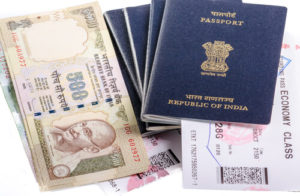We Need Whistleblowers to Save Indian Workers from H-1B Visa Fraud
 (Published in Huffington Post)
(Published in Huffington Post)
The unscrupulous have long preyed on those seeking to immigrate to the United States. Scams and abuses affect all manner of hopeful immigrants, from hardworking agricultural laborers, to highly skilled experts in fields such as architecture, engineering and medicine.
Skilled laborers often enter the US on an H-1B visa. When it works as intended, the H1-B program promises attractive benefits to both immigrant workers and US ventures. In 2011-2014, more than 70% of H-1B visa holders came from India, with China as a distant second. Unfortunately, the H1-B visa is no protection against the types of fraud experienced by lower skilled workers.
But the particular leverage held by employers of foreign workers is that most visa programs require immigrants to work for the company that brought them to the States, or face deportation. Many visa-holders are thus vulnerable to entrapment in what some call a pseudo-slave-market regime that affects skilled and unskilled labor alike. Given this structure, wage abuse of immigrant workers is particularly rampant. Companies can—and do—violate US labor laws. One company was recently caught paying its Indian tech workers as low as $1.21 an hour for 120-hour work weeks.
Other companies pile on various types of abuse and expose their own workers to deportation. For example, last year an Indian worker on the H-1B visa found himself facing an impossible dilemma. After he arrived in the US, he found out that his sponsoring company did not have the promised job available; also, they were not going to give him the promised salary figure, even though salary is an important component of a visa application. Knowing he needed to keep working for them or face deportation, the company offered him a false choice: stay in the US on their payroll, agree to contract work at a new company (thereby committing visa fraud), and give the sponsoring company a percentage fee off his new salary—or go back to India. This company’s unscrupulous actions ultimately got him deported.
The US Department of Justice (DOJ) and the US Department of Labor (DOL) have begun cracking down on fraud aimed at visa holders and hopeful immigrants. Last year, two brothers were convicted of fraud based on a lucrative scheme in which they recruited experienced Indian workers with promises of full-time positions and annual salaries, but in fact hired out workers as part-time consultants at a substantial profit margin. And in 2013, the DOJ successfully settled a $34 million case against Infosys, the biggest sponsor of H-1B visas, for systematic visa fraud.
Increased government enforcement is a positive step toward combating these pernicious frauds against foreign nationals. But prospective and current immigrants—and others who discover similar schemes—need not wait for the government to act. US whistleblower laws allow those with information about fraud against the US government to take direct action to bring the culprits to justice. As an added bonus, whistleblowers, including people who are not US-based, can sometimes be rewarded for their efforts with a share of the money recovered from the fraudster. For example, the aforementioned $34 million case against Infosys was brought by a whistleblower through a US law known as the False Claims Act (FCA), which allows individuals to bring lawsuits on behalf of the United States against people or companies who fraudulently obtain government funds or fail to pay money owed to the government.
Similarly, fraud may be reported through the SEC’s whistleblower program, which encourages those with knowledge of violations of United States securities laws to share information with the SEC. Whistleblowers under the SEC program are eligible for rewards of up to 30% of the amount recovered. Since the inception of the program, the agency has paid more than $85 million in awards to more than 32 whistleblowers.
Hopeful workers emigrating from India suffer a special sort of vulnerability when they risk their lives’ financial trajectories and well-being to come to the US. The DOJ and the SEC have demonstrated their commitment to pursuing bad actors ready to exploit this vulnerability to line their own pockets. But these frauds are so destructive to hopeful immigrants and so antithetical to American values that action cannot come soon enough. A well-placed whistleblower can provide the crucial tip that stops a visa con from entrapping a family. Whistleblowers provide a necessary safeguard not only for America’s public finances and policy priorities, but also for vulnerable immigrants risking their safety and livelihoods for a piece of the American dream.
Tagged in: Visa Fraud,